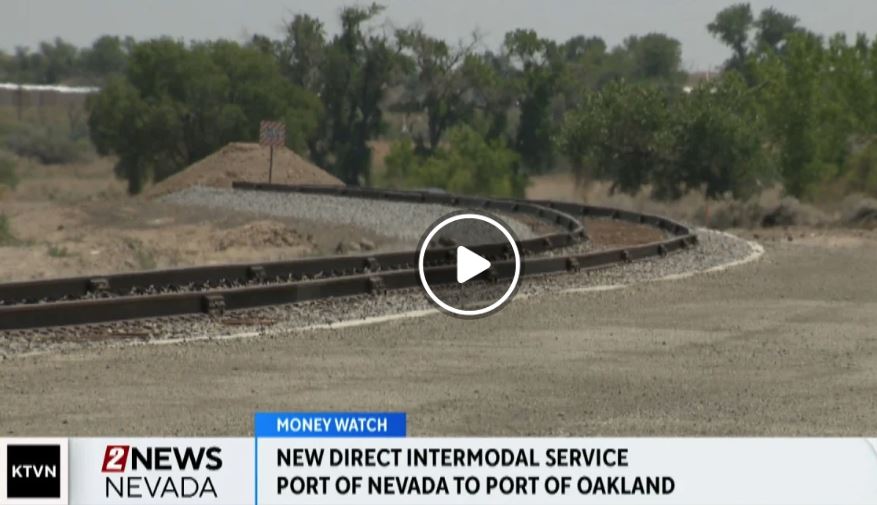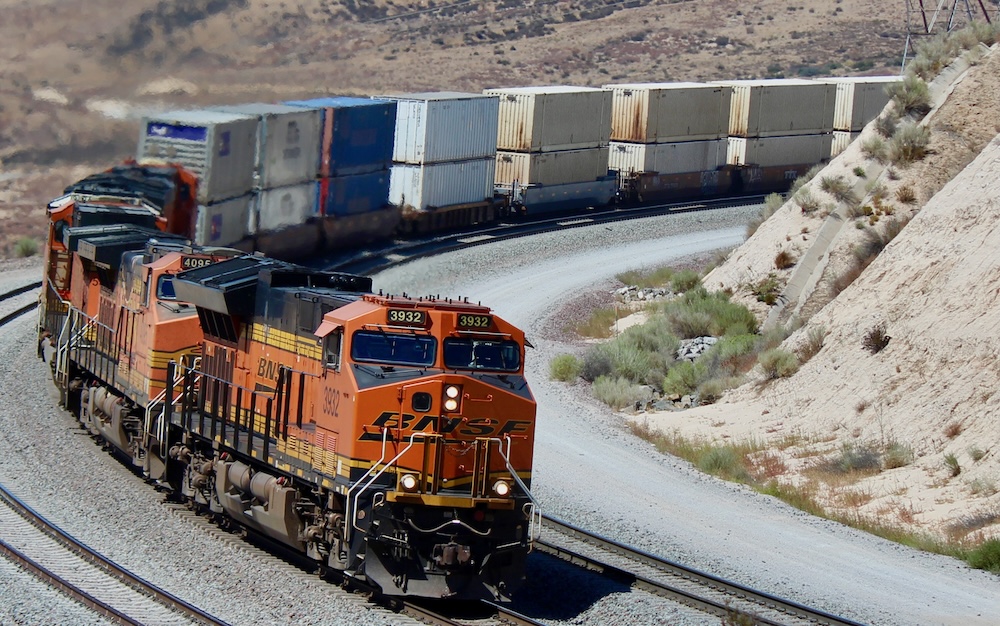This story is from 2 News Nevada television. Click here to read or watch the full story. Below is a brief summary.
The Port of Nevada and the Port of Oakland are collaborating to offer Intermodal service via Union Pacific from the Port of Nevada in Fernley to the Port of Oakland. The full-service rail facility in Nevada offers direct railroad service for imports and exports and has been fully operational for just over a month.
Bryan Brandes, the Maritime director for the Port of Oakland, says that this direct rail access will save time, money, and resources and that cutting down the use of interstate I-80 will provide more confidence for customers. “So they can load heavier cargo in the containers, so they can take trucks off the road in the state of California, and then also so they can have 365 days of uninterrupted service going over the pass, because the U.P. doesn’t stop when the snow happens.”

